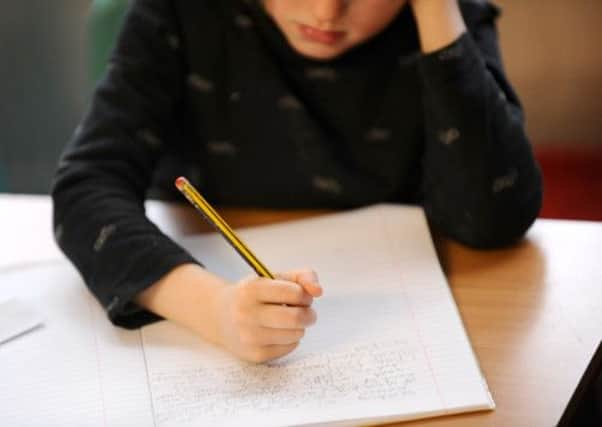Exams pressure pushes lab work out at schools


Laboratory work is the “essence of science” and should be at the heart of education in the subject, according to the Council for Science and Technology (CST).
But pupils are missing out on the chance to conduct experiments as pressures to perform in public exams force teachers into concentrating on preparing youngsters to pass tests, it suggested.
Advertisement
Hide AdAdvertisement
Hide AdIn a letter to Education Secretary Michael Gove, the CST – the Prime Minister’s independent advisory body on science – includes a report which says that studying science without practical work is “like studying literature without reading books”, and there has been a steady erosion of laboratory skills in schools over 20 years.
The CST suggests that Government plans to reform exams could be a chance to test pupils’ practical skills in ways that encourage creative and inspiring science.
The letter says: “Practical laboratory work is the essence of science and should be at the heart of science learning. By international standards, England’s schools are well provided for school laboratory facilities, but we are concerned that the pressures to perform in public examinations – especially GCSE and A-level – are pushing inspiring practical work into the margins as teachers concentrate on preparing for examinations.”
Ministers have announced plans for an overhaul of GCSEs and A-levels with new courses due to be introduced in autumn 2015.
Advertisement
Hide AdAdvertisement
Hide AdUnder changes to GCSEs, there will be a major shift towards exams at the end of two years, rather than pupils sitting papers throughout the course, as well as a move to axe “controlled assessment” – coursework completed in the classroom under strict supervision – in most subjects. Science is likely to be an exception, as England’s exam regulator Ofqual has said that practical science skills are a key part of the subject and cannot be demonstrated in a written exam. Instead, pupils’ laboratory work is expected to be assessed in other ways and marked by teachers. A-level reforms will also see a move to end-of-course exams, and AS-levels, which currently count towards A-levels are to be separated to form a stand-alone qualification.
In its letter to Mr Gove, the CST said: “The forthcoming changes to GCSE and A-level examination arrangements present opportunities to assess practical knowledge and skills in ways that encourage creative and inspiring practical science rather than repetitive preparation for tests. In particular, the move away from modularisation and towards terminal assessment will give teachers space and freedom to devise innovative and challenging practically-based science curricula for their students, including more independent, project-based work.”
The Council’s letter includes a briefing paper from the Gatsby Foundation and the Wellcome Trust which says: “Experiments are the essence of science, and studying science without practical experimental work is like studying literature without reading books. Practical work develops technical and scientific skills, and improves scientific understanding. Yet, over the last 20 years, there has been a steady erosion of laboratory skills taught in school science and this is of significant concern to industry and universities.
“It is vital practical work is assessed as part of all science qualifications including at GCSE and A-level. A qualification such as GCSE physics or A-level chemistry needs to assure employers and universities that the holder has competence in technical and other investigative skills as well as theoretical knowledge and understanding. No GCSE or A-level science qualification should be awarded without evidence that students have developed hands-on practical scientific skills.”
Advertisement
Hide AdAdvertisement
Hide AdIt goes on to say that controlled assessment in science is not fit for purpose, and international studies suggest that direct assessment of practical work, involving teachers, is widely trusted and could be the way forward. The CST also backed Mr Gove’s plan to give universities more control over A-levels, but adds that it is “unclear how it is proposed to achieve this in practice”.
“We believe that learned societies such as the Royal Society of Chemistry, the Institute of Physics and the Society of Biology are well placed to articulate the requirements of universities in their appropriate subjects,” the letter says.
The letter is signed by Sir Mark Walport and Professor Dame Nancy Rothwell, co-chairs of the CST.